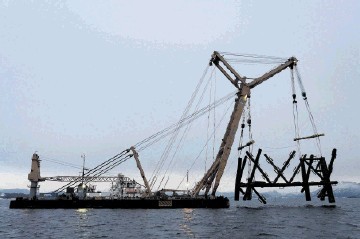
The UK Government recently published updated guidance on Oil and gas: offshore environmental legislation (20 March, 2020). It was a reminder that the OSPAR decommissioning regulations are not consistent with the UK’s Conservation of Offshore Marine Habitats and Species Regulations 2017.
The Conservation of Offshore Marine Habitats regulations are focused on preventing activities that could kill or injure protected marine species. The regulation states – “The Regulations also implement assessment obligations for marine industry activities other than offshore oil and gas”.
Quite clearly there is a different set of environmental rules for offshore oil and gas decommissioning. Whilst there are a number of pertinent regulations relating to UK decommissioning, OSPAR is one of the most significant. However, the OSPAR regulations make no reference to protection of marine species; eventual removal of offshore architecture is mandated apart from three derogations. These are the footings of large steel installations, concrete installations and instances where there is unforeseen circumstances resulting from structural damage.
In summary, OSPAR does not allow for architecture to be left in place irrespective of any environmental damage caused by removal or presence of rare species. A case in point is the cold water coral Lophelia pertusa. Furthermore, removal activities are energy intensive resulting in increased greenhouse gas emissions.
At a time when the country is facing a huge drain on treasury resources as a result of Covid-19, I have to ask again – why is the taxpayer shouldering a large proportion of decommissioning costs? I ask the government to let the taxpayer see the evidence that supports current plans for the costly removal of offshore architecture – to demonstrate that current decommissioning plans are good for the economy, society and the environment. If that can’t be demonstrated, the UK authorities should seek amendment to the OSPAR regulations.
Tom Baxter is visiting professor of chemical engineering at Strathclyde University and a retired technical director at Genesis Oil and Gas Consultants
Recommended for you
